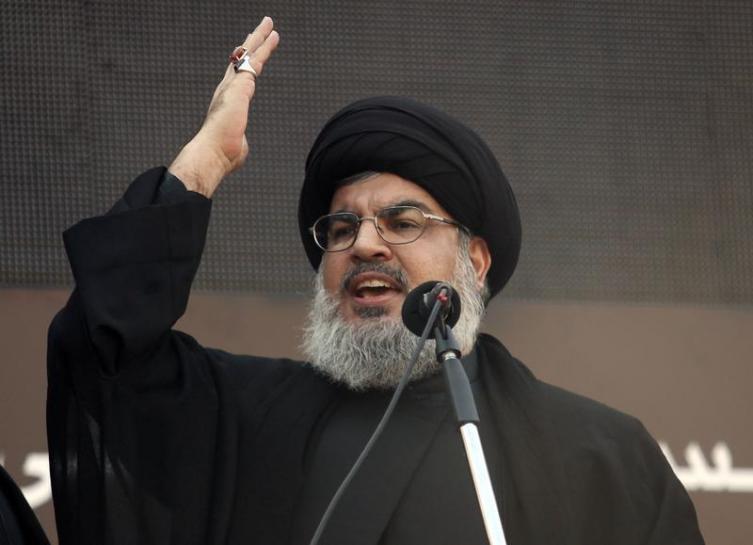Beirut- Hezbollah Secretary General Hassan Nasrallah said on Thursday he had traveled to Damascus to meet head of Syrian regime Bashar al-Assad to request the evacuation of ISIS militants from their enclave on the Syrian-Lebanese borders.
“I personally met with President Bashar al-Assad… I went to him in Damascus,” Nasrallah said in a speech in Baalbek addressed to hundreds of his supporters, whom he urged to celebrate what he called the “Second Liberation.”
The evacuation convoy left the border area late on Monday to take about 600 ISIS militants and their family members to a territory the group controls in eastern Syria.
In his speech on the battle of Arsal, in which the party fought against Al-Nusra Front,the Hezbollah leader outlined some details of the deal that led to the deportation of ISIS militants.
“The time of defeats has ended… thanks to the equation of the homeland, the people and the resistance,” he stated.
Nasrallah stressed that Lebanon’s eastern borders were now under the control of the Lebanese Army, warning that any sanctions against the party and its supporters would be reflected on the Lebanese economy, calling for facing international pressure in the spirit of cooperation.
“Terrorism has taken control of our northern and eastern borders, and the army has prevented the transformation of the northern border and its villages into a haven for terrorists,” he said.
“On the eastern border, the terrorists took control, and their threat was stronger on Lebanon, as they sought to establish an emirate extending from the north to the sea. The Lebanese disagreed on this, despite the clarity of the enemy,” he continued.
“The Lebanese had three choices: either not to intervene, or to be positive, in the sense of facilitating their [ISIS] expansion. The third option was confrontation, which was supported by the majority of people, including Hezbollah,” Nasrallah said.
